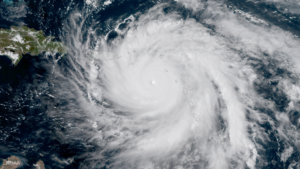
Hurricane season officially started on June 1 and will last until Nov. 30. Researchers are predicting that the 2024 hurricane season is going to be extremely active. The National Oceanic and Atmospheric Association (NOAA) predicts above-normal hurricane activity in 2024, with 17 to 25 named storms.
The U.S. Department of Agriculture (USDA) encourages producers to prepare and protect their family and agricultural operations.
Develop an Emergency Plan: Ensure your household and employees know your hurricane plan, including meeting points, emergency contact lists and alternate evacuation routes in case infrastructure is damaged.
Remove Debris and Secure Large Objects: Clean out culverts, ditches and other drainage areas, especially before and during peak hurricane season, to reduce water damage. Most injuries to animals, people or structures during a hurricane are caused by flying objects. To lessen the risk, minimize the presence of equipment, supplies and debris that may become airborne during high winds or encountered in floodwaters.
Secure important records and documents: Pre- and post-hurricane documentation is extremely important for insurance compensation and recovery assistance. You will want to have thorough records of damages and losses sustained on your farm as well as documentation of your cleanup and recovery efforts.
It is critical to document inventory of farm buildings, vehicles, equipment and livestock before a disaster occurs. Take photos, and videos or make written lists with descriptions. Keep copies of this inventory in multiple places: computer, off-site in a safe location, and on a cloud-based server where information is transmitted and saved weekly.
Know Your Insurance Options: Regularly review your insurance policies with your agent to be sure you have adequate coverage, including flood insurance, for your facilities, vehicles, farm buildings, crops and livestock. Note, there are limitations on how soon insurance coverage will take effect. Generally, insurance policies will not cover damage if the policy was not in place before a disaster.
Gather Supplies: Have drinking water, canned food, a generator, batteries, a flashlight and fuel available in case you lose power. For widespread outages, credit and debit cards may not work, so have cash handy.
Access Real-time Emergency Information: Download the Federal Emergency Management Agency (FEMA) smartphone app for free on the App Store and Google Play for safety tips on what to do before, during and after disasters. Subscribe to FEMA’s text message and email service to receive real-time, local operational and recovery information from the Farm Service Agency (FSA), Natural Resources Conservation Service (NRCS) and Risk Management Agency (RMA).
Natural Resources Conservation Service Caribbean Area will assess the damages from any weather event for which an emergency was declared and will announce a sign-up period to address natural resource concerns caused by the event within the impacted area. During any emergency-related event, the Natural Resources Conservation Service will prioritize assistance to the reapplication of failed practices on active or completed contracts, where the failure was not the result of a contract violation.
On www.farmers.gov, the Hurricane Webpage, Disaster Assistance Discovery Tool, Disaster-at-a-Glance fact sheet and Loan Assistance Tool can help producers and landowners determine program or loan options. For assistance with a crop insurance claim, producers and landowners should contact their crop insurance agent. For Farm Service Agency and Natural Resources Conservation Service programs, they should contact their local USDA Service Center. For updates, follow Natural Resources Conservation Service in social media @NRCS_Caribbean.





